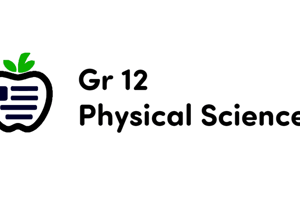Podcast
Questions and Answers
How are bonds broken and reformed in elimination reactions?
How are bonds broken and reformed in elimination reactions?
- By increasing electronegativity
- By rearranging electrons (correct)
- By forming unstable compounds
- By adding hydrogen atoms
What is the main focus of the lecture discussed in the text?
What is the main focus of the lecture discussed in the text?
- Studying chemical properties of halogens
- Nucleophilic substitution reactions
- Understanding elimination reactions (correct)
- Identifying alpha and beta carbons
What role do alpha carbons play in elimination reactions?
What role do alpha carbons play in elimination reactions?
- Undergo rearrangement (correct)
- Act as nucleophiles
- Increase electronegativity
- Serve as hydrogen donors
Why is it important to understand the reactivity of different elements in chemical reactions?
Why is it important to understand the reactivity of different elements in chemical reactions?
What is the result of removing hydrogen from a compound during an elimination reaction?
What is the result of removing hydrogen from a compound during an elimination reaction?
How does the lecturer demonstrate the formation of stable compounds in elimination reactions?
How does the lecturer demonstrate the formation of stable compounds in elimination reactions?
What is the primary emphasis of the speaker in discussing courage and determination?
What is the primary emphasis of the speaker in discussing courage and determination?
In elimination reactions, what role do beta hydrogens play?
In elimination reactions, what role do beta hydrogens play?
Why is understanding the reactivity of different elements crucial in predicting reaction outcomes?
Why is understanding the reactivity of different elements crucial in predicting reaction outcomes?
What is the key step in elimination reactions that leads to the formation of new compounds?
What is the key step in elimination reactions that leads to the formation of new compounds?
How are nucleophilic substitution reactions different from elimination reactions?
How are nucleophilic substitution reactions different from elimination reactions?
What distinguishes alpha carbons from other carbon atoms in elimination reactions?
What distinguishes alpha carbons from other carbon atoms in elimination reactions?
Flashcards are hidden until you start studying
Study Notes
- The speaker discusses the concept of courage and determination, emphasizing the importance of facing one's fears and staying committed to one's goals.
- The lecture is on finishing a chapter and studying chemical properties, specifically focusing on elimination reactions.
- Previous lectures covered topics like nucleophilic substitution reactions and elimination reactions.
- The process involves removing hydrogen from a compound, leading to the formation of different products based on the presence of halogens and hydrogens.
- The lecturer explains how elimination reactions work by breaking bonds and rearranging electrons to form new compounds.
- Specific attention is given to alpha carbons, beta hydrogens, and the rearrangement of electrons during the reaction.
- The speaker guides the audience through the process of identifying alpha and beta carbons, understanding their role in the reaction, and predicting the products formed.
- By analyzing the electron distribution and electronegativity of atoms involved, the lecturer demonstrates how bonds are broken and reformed to create stable compounds.
- Through detailed examples and structural formulas, the lecturer illustrates how elimination reactions lead to the formation of double bonds and stable carbon structures.
- The discussion highlights the importance of understanding the reactivity of different elements and how it influences the outcome of chemical reactions.
Studying That Suits You
Use AI to generate personalized quizzes and flashcards to suit your learning preferences.




